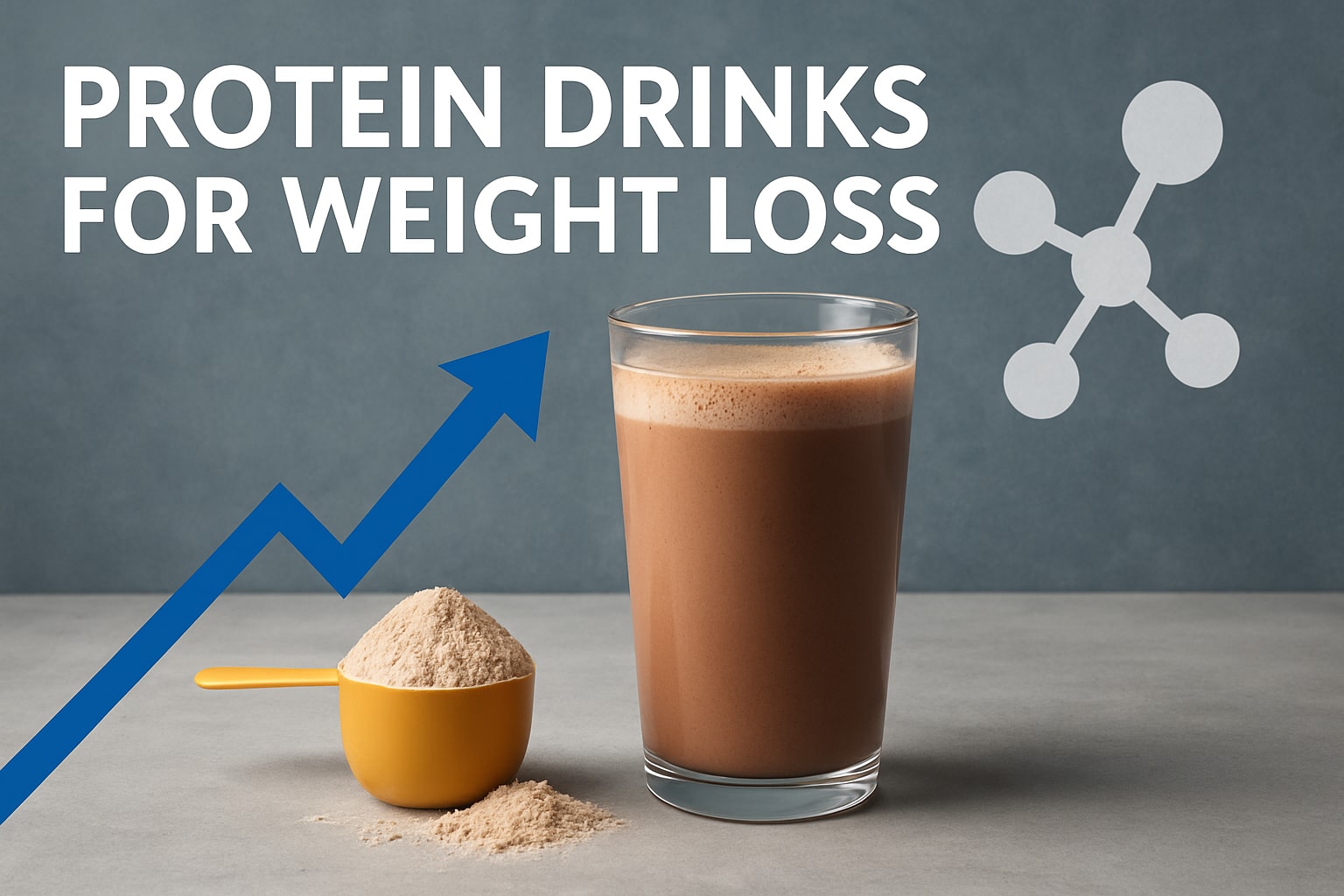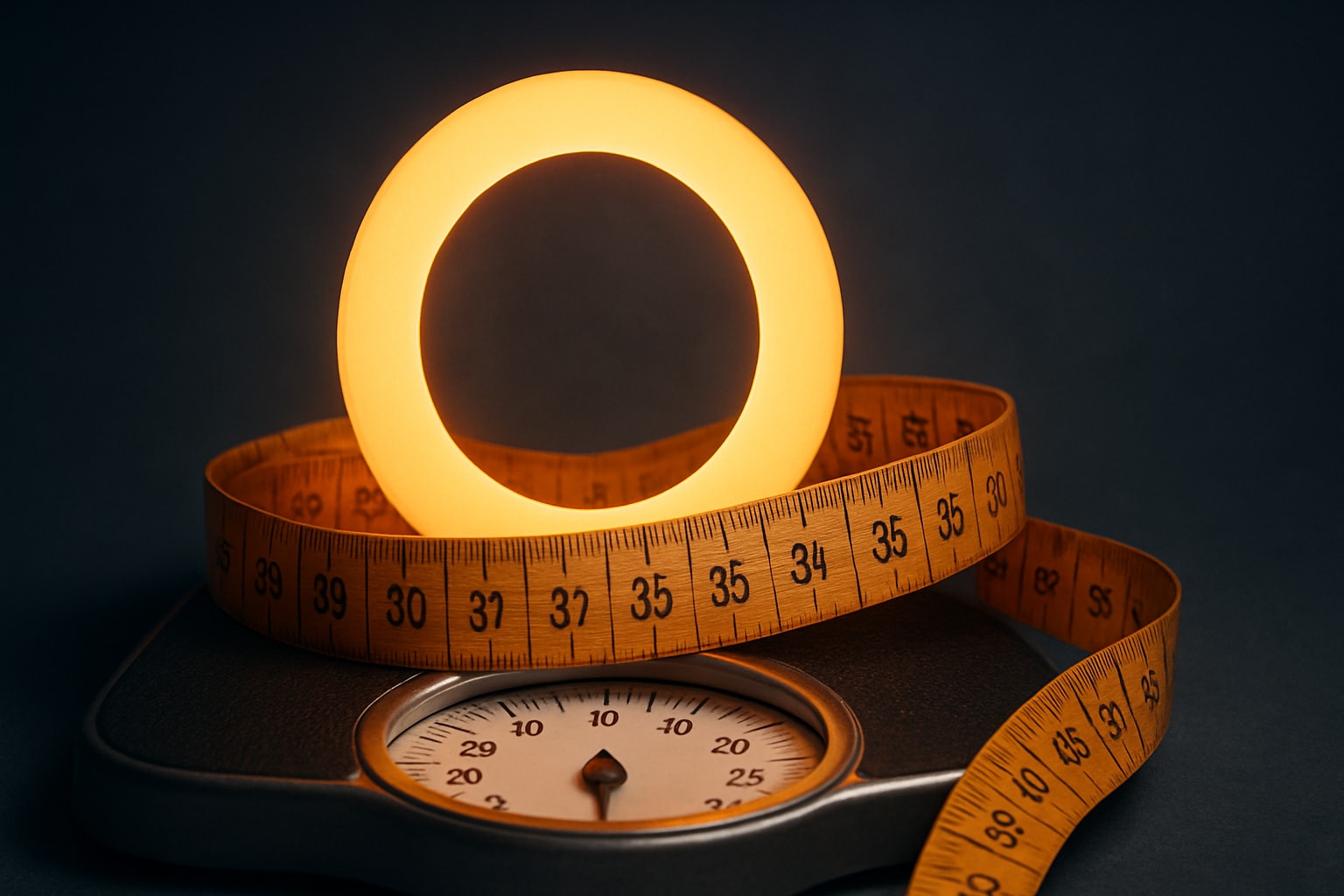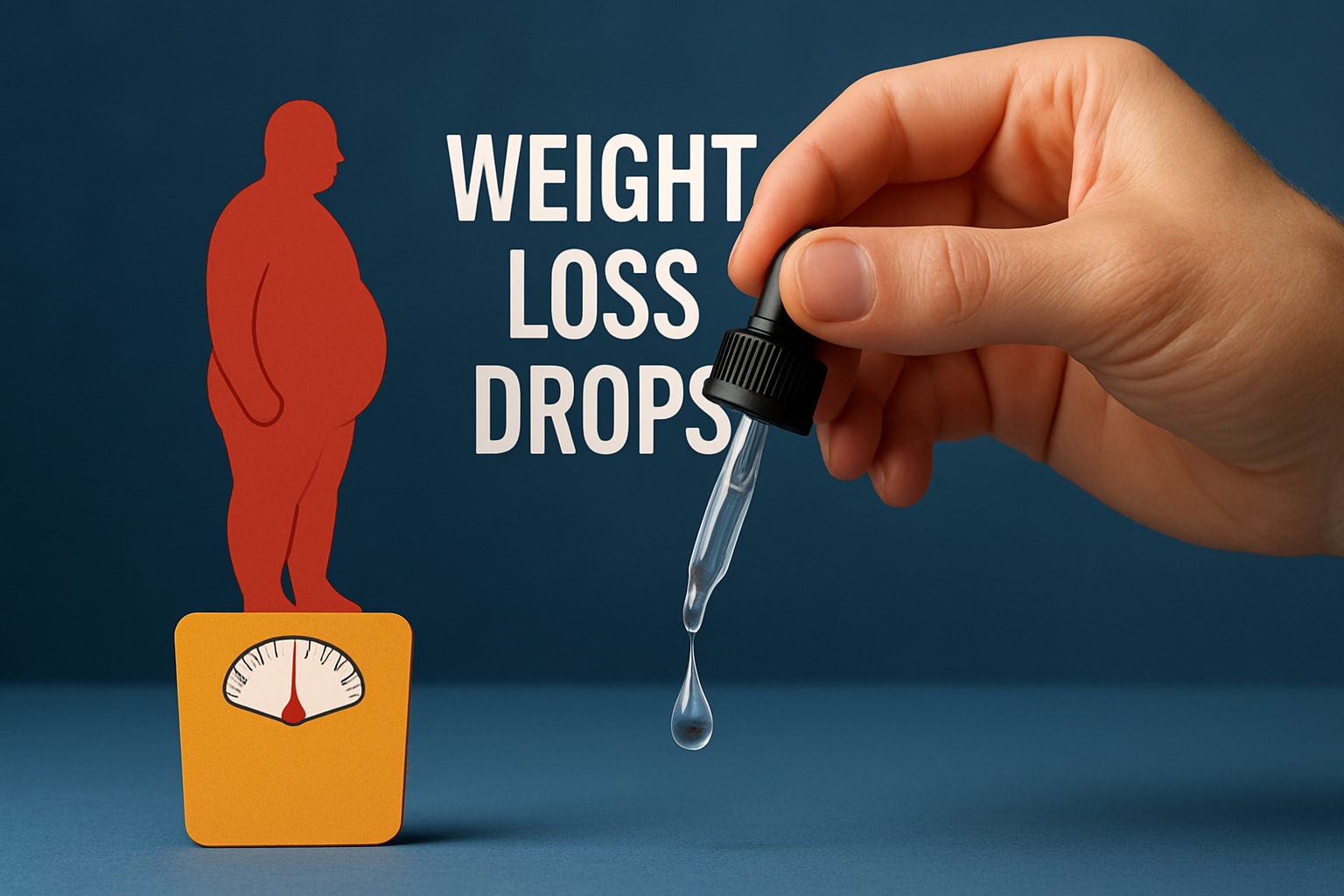Are you frustrated by stubborn weight that will not budge, no matter what you try? For many, the secret lies in balancing hormones for weight loss, a crucial factor often overlooked in traditional approaches.
This guide uncovers how restoring hormonal balance can transform your results, backed by the latest science and neuroscience insights. You will discover why hormones are the key to lasting change, what symptoms to watch for, and step-by-step strategies to regain control.
Ready to unlock a new path? Start your journey with personalized hormone-balancing tools, and explore how expert guidance can reshape your weight loss experience for 2025.
The Hormone-Weight Loss Connection: What Science Reveals
Why does it sometimes feel impossible to lose weight, even when you follow every diet rule in the book? The answer lies in a hidden factor: your hormones. For anyone serious about balancing hormones for weight loss, understanding this science-backed connection can be the key to lasting results. Hormones act as your body's messengers, directing how you store fat, burn calories, and experience hunger.

Let us break down the six main hormones that influence your weight:
- Insulin: Controls blood sugar and fat storage. When insulin is consistently high, your body tends to store more fat, especially around the midsection.
- Cortisol: Known as the stress hormone, high levels can lead to increased abdominal fat and cravings for sugary foods.
- Leptin and Ghrelin: These hormones regulate appetite and fullness. When out of sync, you may feel hungry even after eating or never quite satisfied.
- Estrogen: Plays a key role in fat distribution, especially for women. Changes during menopause or conditions like PCOS can make weight management harder.
- Thyroid Hormones: Directly impact your metabolism. Low thyroid function can slow down calorie burning and cause weight gain.
Emerging research from 2022 to 2024 confirms that balancing hormones for weight loss is not just a trend, but a science-driven approach. Studies have linked insulin resistance with the rising rates of obesity in adults, according to the CDC. In fact, over 30% of adults now show signs of insulin resistance, making it a significant factor in stubborn weight gain. If you want to learn more, explore additional resources for evidence-based programs that address these root causes.
Common symptoms that suggest your hormones could be out of balance include:
- Fatigue and low energy, even after a full night's sleep.
- Intense cravings for sugar or carbs.
- Slowed metabolism, making it difficult to lose weight.
- Accumulation of belly fat, regardless of exercise.
- Mood swings and trouble concentrating.
If you relate to these signs, you are not alone. For many people, factors like age, gender, and lifestyle changes can shift hormone levels dramatically. For example, women over 40 often experience a weight plateau due to declining estrogen and shifts in thyroid function. Men may notice metabolic slowdown linked to testosterone and thyroid as well.
Endocrinologists now emphasize that diet and exercise alone may not be enough for everyone. Instead, a comprehensive approach that includes balancing hormones for weight loss can unlock stubborn fat stores and restore energy. For actionable strategies, check out 5 Ways to Accelerate Weight Loss, which offers metabolism-boosting tips grounded in hormone research.
In 2025, more people are turning to hormone-balancing methods as part of their wellness routine. This includes tracking symptoms with free digital tools, joining support groups, and following hormone-friendly recipes. Many also benefit from reading about 10 Foods to Supercharge Metabolism and exploring expert guidance for their unique needs.
Whether you are managing PCOS, menopause, or simply want to optimize your metabolism, the science is clear: balancing hormones for weight loss is foundational. Modern approaches offer hope for those who have struggled with traditional diets. By understanding your body's signals and leveraging the latest research, you can take control of your weight journey in 2025.
Root Causes of Hormonal Imbalance in 2025
Modern life in 2025 presents unique challenges for balancing hormones for weight loss. Our daily routines, environment, and even work schedules can disrupt the delicate hormonal signals that regulate metabolism and fat storage.

Chronic Stress and Cortisol Overload
Persistent stress is one of the most common root causes of hormonal imbalance today. When stress remains high, cortisol levels rise, making it harder for your body to burn fat and easier to store it, especially around the abdomen. This cycle can sabotage even the best intentions for balancing hormones for weight loss.
If stress is a daily hurdle, explore 7 ways to reduce cortisol levels for practical strategies. These science-backed methods can help you break the stress-weight connection and support your journey.
For more holistic approaches, see the weight management tools designed to foster healthy habits and reduce stress triggers.
Ultra Processed Foods and Hormone Disruption
The rise of ultra processed foods is another key factor. Foods high in added sugars, refined carbs, and artificial additives trigger insulin spikes and disrupt leptin, the hormone that signals fullness. Over time, this leads to insulin resistance and stubborn weight gain, making balancing hormones for weight loss more challenging.
To counteract these effects, focus on whole foods and healthy fats. The hormone-friendly meal plans offer guidance on building meals that stabilize blood sugar and support satiety.
Environmental Toxins and Endocrine Disruptors
Everyday exposure to plastics, pesticides, and chemicals found in personal care products introduces endocrine disruptors that interfere with hormone production and signaling. These toxins can mimic or block hormones, derailing your efforts at balancing hormones for weight loss.
Consider practical steps such as switching to glass containers, using natural cleaning products, and choosing organic produce when possible. Discover more toxin reduction tips in our clean living guide.
Sleep Deprivation and Hormonal Havoc
Lack of quality sleep increases ghrelin (the hunger hormone) and decreases leptin, leading to persistent cravings and overeating. Research shows that even a week of poor sleep can impact the hormones crucial for weight management.
For effective sleep strategies, visit our sleep optimization resource and learn how to reset your circadian rhythm for better hormone balance.
Extremes in Diet and Exercise
Both over exercising and chronic under eating can backfire by disrupting sex hormones, thyroid function, and cortisol. While movement and calorie control are important, extremes place the body in a state of stress, undermining the goal of balancing hormones for weight loss.
Instead, focus on sustainable routines like moderate strength training, mindful nutrition, and rest days. The balanced fitness program provides a science-based approach tailored for hormonal health.
Medications, Medical Conditions, and Demographic Factors
Certain medications (such as steroids or antidepressants) and conditions like PCOS and thyroid disorders directly impact hormone levels and metabolism. Age, gender, and even shift work patterns further increase vulnerability to imbalance.
According to NIH data from 2023, nearly 40% of adults show signs of some form of hormonal disruption. Shift workers, for example, face a higher risk of metabolic syndrome due to irregular sleep and meal timing.
If you suspect an underlying issue, consult a healthcare professional and track your symptoms using our free hormone health tracker.
Building Awareness and Taking Action
Understanding the root causes of imbalance is the first step in balancing hormones for weight loss. By addressing stress, diet, toxins, sleep, and lifestyle extremes, you can regain hormonal harmony and unlock real results.
For further reading on how daily habits impact hormone health, explore our in depth article on why we overeat and how to stop. Remember, small, consistent changes are the foundation of lasting progress.
7 Steps to Balance Hormones for Weight Loss
Achieving lasting results with balancing hormones for weight loss requires a methodical, science-backed approach. Many people plateau because they overlook the powerful influence of hormones on metabolism, appetite, and fat storage. This step-by-step guide empowers you to take control, restore hormonal equilibrium, and unlock your healthiest weight, starting today.

Step 1: Identify and Test for Hormonal Imbalances
The first step in balancing hormones for weight loss is uncovering what is happening beneath the surface. Symptoms like stubborn belly fat, unexplained fatigue, and intense cravings can signal underlying hormonal issues.
Consult a healthcare professional to discuss your symptoms and request targeted lab tests. Common tests include fasting insulin, thyroid panel, cortisol, and reproductive hormone levels. For a comprehensive self-assessment and to track progress, explore this free hormone health tool.
Early detection helps you personalize your strategy and prevents wasted effort. Many individuals discover that balancing hormones for weight loss is the missing link after years of unsuccessful dieting.
Step 2: Prioritize Sleep Hygiene for Hormone Reset
Quality sleep is fundamental for balancing hormones for weight loss. Poor sleep disrupts ghrelin and leptin, increasing hunger and cravings, while raising cortisol, which promotes fat storage.
Aim for 7–9 hours of restful sleep each night. Set a consistent bedtime, establish a relaxing pre-sleep routine, and limit blue light exposure in the evening. Research shows that addressing sleep and stress leads to better weight outcomes for 70% of adults (Sleep Foundation, 2024).
Consider using sleep tracking tools to monitor patterns and identify areas for improvement. Prioritizing sleep is a non-negotiable foundation for hormonal balance and sustainable weight loss.
Step 3: Adopt a Hormone-Friendly Nutrition Plan
The food you eat directly influences insulin, leptin, and other key hormones. Focus on whole, minimally processed foods: leafy greens, fatty fish, nuts, seeds, and quality proteins. These choices support balancing hormones for weight loss by stabilizing blood sugar and reducing inflammation.
Avoid added sugars, refined carbs, and trans fats. Meal timing matters too—regular meals prevent insulin spikes and help regulate appetite. For evidence-based recipes and daily meal inspiration, visit these hormone-friendly meal plans.
For a holistic approach, learn more about the Weight Loss Program Introduction, which incorporates nutrition, lifestyle, and hormonal health.
Step 4: Manage Stress with Proven Techniques
Chronic stress floods your system with cortisol, which can sabotage balancing hormones for weight loss. High cortisol not only increases abdominal fat but also disrupts sleep and appetite-regulating hormones.
Integrate stress-reduction practices such as mindfulness meditation, breathwork, or gentle yoga into your daily routine. Even a few minutes per day can make a measurable difference. Discover guided stress management resources designed for hormonal health.
For in-depth insights, read Why We Overeat and How to Stop for science-backed strategies to break the stress-eating cycle.
Step 5: Incorporate Movement That Supports Hormone Health
Exercise is a powerful modulator for balancing hormones for weight loss. Strength training, brisk walking, and low-impact cardio help lower insulin resistance, boost metabolism, and regulate appetite hormones.
Aim for 150 minutes of moderate activity each week, and include resistance exercises at least twice weekly. Listen to your body; over-exercising can elevate cortisol and backfire. For personalized workout routines and progress tracking, explore the movement and fitness section.
Balancing hormones for weight loss is about consistency, not perfection. Celebrate small wins and adjust as needed.
Step 6: Reduce Exposure to Endocrine Disruptors
Everyday products can contain chemicals that interfere with hormonal balance. Plastics, synthetic fragrances, and certain personal care products may act as endocrine disruptors, affecting your efforts in balancing hormones for weight loss.
Switch to glass or stainless steel for food storage, choose fragrance-free and natural personal care items, and filter your water when possible. For a detailed guide on reducing environmental toxins, check the hormone health toolkit.
Making small, consistent swaps protects your hormone health and supports long-term weight management.
Step 7: Track Progress and Adjust Based on Results
Sustainable success with balancing hormones for weight loss requires ongoing evaluation. Use a journal or app to log symptoms, energy levels, sleep quality, and weight trends. Regular check-ins help you spot patterns, address plateaus, and celebrate progress.
Many people find community support invaluable. Engage with support groups and coaching forums for accountability and expert advice.
For motivational stories and actionable tips, read The Science of Self-Hypnosis for Weight Loss.
Success Story: After implementing these steps, a woman with insulin resistance saw her cravings diminish, energy increase, and weight loss resume—all by addressing her hormones rather than just calories.
Remember, balancing hormones for weight loss is a journey, not a quick fix. With the right strategy, you can achieve results that last.
Advanced Hormonal Strategies for 2025
Unlocking the next level of balancing hormones for weight loss requires a forward-thinking approach. New research, technology, and personalized medicine are changing the way we target stubborn metabolic issues. In 2025, advanced strategies are more accessible and effective than ever.

Personalized Testing and Smart Technology
Personalized hormone testing is now a cornerstone of balancing hormones for weight loss. Modern lab panels assess levels of insulin, cortisol, thyroid hormones, and sex hormones, providing actionable insights. Pairing these results with wearable technology, such as continuous glucose monitors and sleep trackers, allows for real-time feedback on how lifestyle choices impact metabolism.
Many individuals use science-backed progress trackers to monitor trends in sleep quality, stress, and nutrition. These tools empower you to adjust habits quickly, supporting sustainable hormonal balance. The integration of tracking apps with lab data creates a tailored roadmap for each person’s journey.
Adaptogens, Supplements, and Natural Molecules
Supplements and adaptogens are gaining traction in balancing hormones for weight loss. Nutrients like magnesium and omega-3s, along with adaptogens like ashwagandha, support stress resilience and metabolic health. Emerging science from Stanford highlights a naturally occurring molecule rivals Ozempic in weight loss, offering promising new avenues for appetite regulation without harsh side effects.
For practical routines, many people turn to expert nutrition guides and daily food logs to ensure they get the right nutrients while tracking their progress.
Hormone Therapy and Biohacking Innovations
Hormone replacement therapy (HRT) is evolving, with new protocols designed for safety and effectiveness. For postmenopausal women, combining HRT with new medications has shown promise. A recent study found that hormone therapy enhances tirzepatide weight loss in postmenopausal women, underscoring the importance of medical guidance.
Biohacking trends in 2024 point to the use of personalized supplements, light therapy, and smart habit-building programs to optimize hormonal health. These approaches are often complemented by in-depth articles on mind-body science.
Gut Microbiome and Data-Driven Approaches
The gut microbiome plays a pivotal role in balancing hormones for weight loss. Cutting-edge research shows that gut bacteria influence insulin sensitivity, cortisol levels, and fat storage. Many individuals are now using personalized meal planning tools to support gut health and hormone balance.
Wearable tech and data analysis platforms help users identify patterns between diet, stress, and hormonal symptoms. By leveraging habit tracking dashboards, you can make evidence-based adjustments that support long-term results.
Real-Time Monitoring and Expert Support
Continuous glucose monitors and smart devices are revolutionizing how we approach balancing hormones for weight loss. These tools provide instant feedback on blood sugar trends, enabling users to tweak meals, exercise, and stress management in real time.
Working with endocrinologists or functional medicine practitioners is essential for interpreting data and creating a customized plan. Many people find ongoing community support and professional guidance invaluable for staying motivated and accountable.
With these advanced strategies, achieving hormonal balance is no longer a guessing game. By combining personalized data, expert advice, and science-based digital resources, you can unlock your body’s full potential for sustainable weight loss.
Real-Life Success Stories & Practical Tips
Real stories provide hope and proof that balancing hormones for weight loss is not just a theory but a practical path. People from all walks of life are unlocking results by addressing their unique hormone needs, often after years of frustration with diets and exercise alone.
From Frustration to Breakthroughs
Consider Maria, who struggled with stubborn weight after menopause. Doctors suggested exercise and calorie restriction, but nothing worked until she explored group coaching focused on hormonal health. By tracking symptoms and adapting her meals, she finally broke her plateau. Her journey echoes findings from the Dynamics of menopause from deconvolution of lab tests, which reveal how menopause triggers complex hormonal shifts affecting fat distribution and metabolism.
John’s story is different but equally inspiring. Years of stress led to high cortisol and unwanted belly fat. By using personalized programs to monitor stress and incorporate mindful movement, he regained energy and focus. For men, research such as the Low-fat diets and testosterone levels in men study highlights how dietary choices can directly influence hormone balance and weight outcomes.
Daily Routines and Mindset Shifts
Success rarely happens overnight. Many who succeed with balancing hormones for weight loss credit small, consistent changes. For example, setting a regular sleep schedule, choosing nutrient-dense foods, and practicing stress reduction daily. Using habit-tracking tools helps maintain accountability and motivation.
Mindset is equally important. One participant shared, “I stopped seeing setbacks as failure and started using them as feedback.” This shift, combined with resources like expert articles on hormonal health, made it easier to stay on track.
Overcoming Setbacks and Plateaus
Plateaus are a normal part of any journey. In a recent group, several women over 40 found progress stalled despite healthy habits. They addressed this by joining online forums where peers and coaches provided fresh strategies, like adjusting meal timing and emphasizing recovery.
Tracking progress is crucial. Many use free progress trackers to log symptoms, energy, and mood. This data helps identify patterns and celebrate small wins, which is vital for staying motivated.
The Power of Community and Support
Peer support often makes all the difference. Group coaching, whether in person or online, fosters encouragement and accountability. Participants frequently mention that sharing experiences and solutions in a supportive community keeps them engaged and inspired.
Access to professional guidance is also key. Many success stories involve working with endocrinologists or functional medicine practitioners. Readers can find directories of hormone health experts and guidance through curated programs.
Practical Tips for Your Journey
- Prioritize sleep to support hormone reset.
- Choose whole, minimally processed foods.
- Practice mindful eating and stress management.
- Use evidence-based tools to monitor habits and results.
- Stay connected with ongoing support resources.
For deeper insight, explore The Science of Self-Hypnosis for Weight Loss and other expert-backed strategies.
Balancing hormones for weight loss is a journey, not a sprint. With the right strategies and support, lasting results are within reach.
Now that you understand how hormones shape your weight loss journey, it is time to put this knowledge into action. By listening to your body, making small adjustments, and embracing neuroscience-backed methods, you can finally break through stubborn plateaus and build habits that last. If you are ready to take the next step, let us help you identify your unique hormonal patterns and guide you with strategies tailored to your needs. It only takes a few minutes to get started—discover your personalized path to balanced hormones and effortless weight loss with our quick quiz.
Start Quizz















